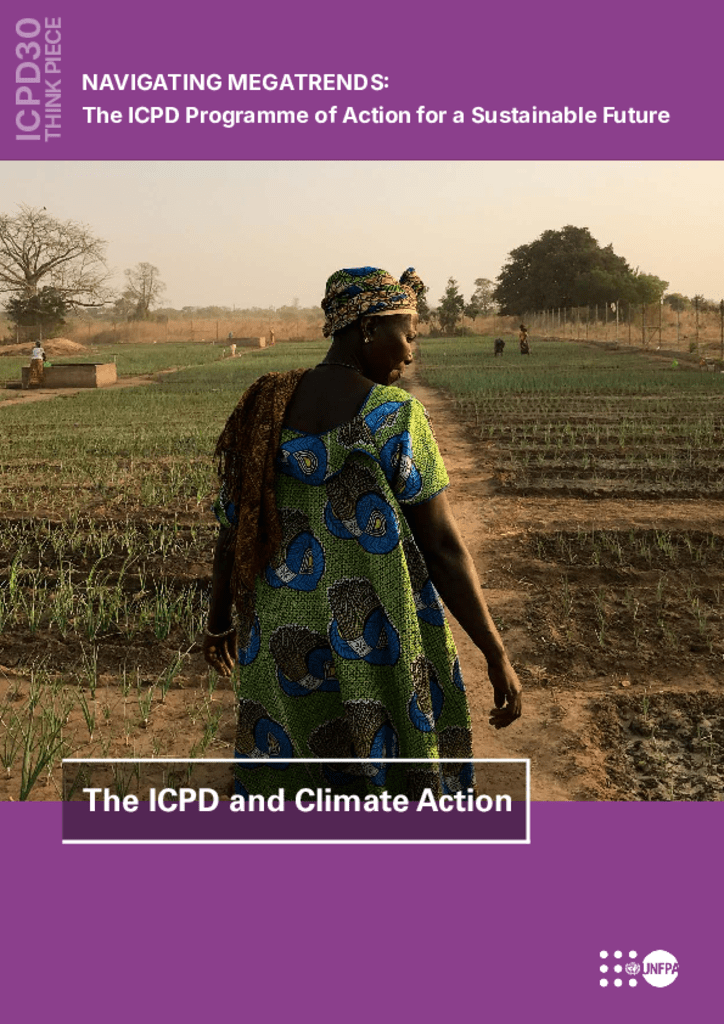
Publication
ICPD and Climate Action
Number of pages: 36
Publication date: 11 Jul 2024
Publisher: UNFPA

Publication
Number of pages: 36
Publication date: 11 Jul 2024
Publisher: UNFPA
Since the ICPD in 1994, what was then referred to as “climate change” has evolved into today’s “climate crisis”, and is now recognized as the existential threat of our time. Recent increases in global warming are unprecedented in human history, causing the melting of polar ice caps, a rise in sea levels, the warming and acidification of the oceans, and the increasing frequency, duration and intensity of adverse weather events. Scientists agree that we have entered a new geological epoch, the Anthropocene, in which humans are the primary drivers of change in the Earth’s atmosphere.
The latest estimates show that if the burning of fossil fuels and their corresponding carbon emissions are not drastically reduced, we will reach a 3.2°C degree increase in warming by the end of the century. Approximately 50 to 75 per cent of the global population could be exposed to periods of life-threatening climatic conditions due to extreme heat and humidity.
The climate crisis is already disrupting social, economic and natural systems. It is pressuring water availability, food production, transport and urban infrastructure as well as biodiversity and human health. Examples of devastating impacts have already been recorded in various climate hotspots. In West and Central Africa, global warming continues to worsen droughts, desertification, floods, food insecurity, human displacement, social unrest and insecurity. Climate impacts on large semiarid agrosystems are making livelihoods difficult to sustain, especially for those directly dependent on agriculture. Increasing drought has led to escalating competition over grazing land, heightening water stress and food insecurity, all of which are risk factors for conflicts; indeed, the region is currently home to 7 of 13 medium-intensity conflict countries. Other critical climate hotspots include many small island developing States, as rising sea levels and extreme weather events such as cyclones pose existential risks for these island nations. The consequences of the climate crisis amplify inequalities, such as gender inequality, and contribute to social trauma that heightens vulnerabilities and violence, including against women and girls.
The climate crisis will have an impact on everyone, everywhere, affecting both present and future generations to whom people today have a moral obligation. While no individual, country, system or sector is entirely spared from the consequences of the climate crises, climate impacts are grossly unequal, within and among countries. Low- and middle-income countries that have contributed the least to carbon emissions are the most severely impacted by the climate crisis, and are less able to afford and implement necessary adaptation and resilience strategies to prevent and recover from loss and damage. Among groups of people, poor women and marginalized populations bear the brunt. Around the world, individuals are being deprived of their “human right to a clean, healthy and sustainable environment of which a safe and stable climate is a key element. The Intergovernmental Panel on Climate Change (IPCC) Sixth Assessment Report stresses that rights-based approaches to climate action are crucial to achieving outcomes that are both effective and sustainable.